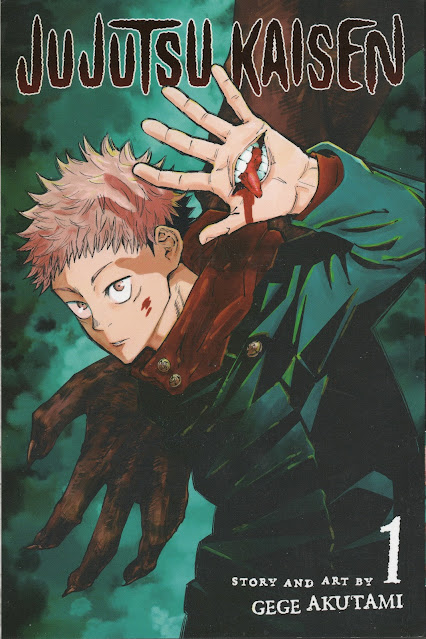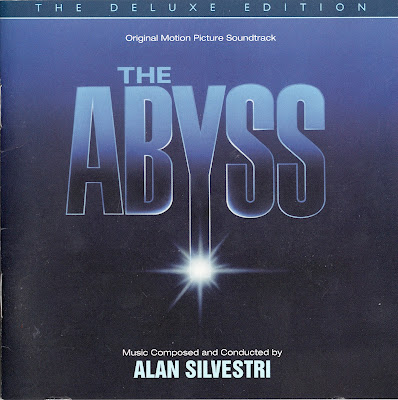Although there had been talk and an intention of doing an Alien 2 as early as late 1979, when it was clear to the producers and distributors that Alien was a bona fide hit, seven years would pass before the long desired sequel managed to get made and released into movie theaters across the globe.
Just the ramblings, observations, opinions, memories, and memorabilia of a Gen X Horror Geek.
Saturday, November 30, 2024
Aliens (1986) - Soundtrack
Friday, November 29, 2024
Horror High (1973) - Review
"Vernon, that is you, isn't it?"
Wednesday, November 27, 2024
Monday, November 25, 2024
The Whispering Gallery - Newspaper Ad
 |
| Oakland Tribune - June 13, 1930 |
An article printed in the Saturday, June 14th edition of Oakland Tribune boasts that "thrill succeeds thrill with secret panels, ghostly apparitions, clutching hands and cloaked figures."
Sunday, November 24, 2024
Alien (1979) - Soundtrack
As for my discovery of Goldsmith... 1979 would also be the year I figured out that there were people behind the camera responsible for creating and crafting the movies and television programs I was watching and, more often than not, enjoying. It was when I started to pay closer attention to all the names listed in both the opening and ending credits.
I had not seen Star Trek The Motion Picture, but was a big fan of the show, which is no doubt why my parents chose to give me that particular soundtrack album. Alien, however, had been one of the most impactful cinematic experiences of that year for me. (John Carpenter's Halloween would be the other one. But that is yet another subject for another post at another time...)
I do not know if it was on Christmas Day itself, but I do remember the jolt when I first noticed that the very different sounding scores for both Alien and Star Trek The Motion Picture had been composed by the very same man. Whoa.
Film editor Terry Rawlings temped his working cuts for Alien with as much of Goldsmith's past music he felt would communicate the kind of mood he and director Ridley Scott wanted for the film. The composer, who disliked temp tracks, did not appreciate Rawlings efforts. Goldsmith would also be infuriated and insulted at Rawlings and Scott's decision to retain the temp music for three sequences and the end titles in the finished film. Those three sequences utilized pieces taken from Goldsmith's Oscar-nominated score for Freud (1962), while the end credits were accompanied by a section from Howard Hanson's Symphony No. 2.
That is why the first time I listened to the Alien soundtrack, on that Christmas Day way, way back in 1979, hearing music that I did not recognize at all was a disconcerting and disappointing surprise.
12-year-old me was confounded and frustrated by all this unrecognizable music. Especially the Main Title. Where was the weird and haunting music that had played over the opening credits in the movie? I wanted to hear what had been in the movie. I did not know that this was the music Goldsmith had composed for the movie and, for a variety of reasons, had not been used.
Even though Goldsmith liked to grumble about his scores being collected as if they were bottle caps. About said collectors wanting each and every note of music, regardless of its quality or meaning. What he might not have realized, or understood, was how something he might have found unimportant, or unrepresentative of what he was doing with the score, could be very important to a listener, or fan, such as myself.
What imprinted on me was the Main Title used in the film. Which is included in this 2007 release from Intrada that contains every note Jerry Goldsmith composed for the film.
While the film version's inclusion was appreciated by adult me, and would have been adored by 12-year-old me, I now understand Goldsmith's frustration with how his subtle approach to the opening of the film was dismissed and discarded. That he was made to do something obvious. In the liner notes Goldsmith laments, "The original one took me a day to write, and the alternate took me about five minutes."
Now that I have had the chance to listen to them side by side, adult me can hear the difference. There is real craft and passion in the original version, while the alternate is a professional, albeit passionless, work-for-hire piece.
Having each and every note can offer quite the education and I consider this 2-disc set to be one of the Crown Jewels of my soundtrack collection.
Tuesday, November 12, 2024
The Blair Witch Project (1999) - Trading Card #4
 |
| The Blair Cult |
Monday, November 11, 2024
The Abominable Dr. Phibes (1971) - Promo
 |
| San Francisco Examiner - July 4, 1971 |
I was also pleased with the amount of love that this ghoulish little gem got doused with in the 'Horror Comedies' episode of the Shudder series Horror's Greatest.
Sunday, November 10, 2024
The Alchemist (1985) - Soundtrack
Saturday, November 9, 2024
Alien (1979) - Trading Card #1
Time: the future. Place: the commercial towing vehicle "Nostromo", a gigantic Mineral Ore Refinery being tugged across the galaxy. Its crew, five men, two women, and one cat, are deep in hyper-sleep...
I do recall watching a segment of Sneak Previews wherein Gene Siskel took a moment to hold up one of Kenner's 18" Alien figures and rant about how vile it was for a toy company to make and sell something so inappropriate for children. 12-year-old me thought he was an overreacting, stick-in-the-mud jerk-face. That toy looked awesome and I wanted it, bad.
Yet who got it for Christmas that year? My younger brother. I got the soundtrack album, Heavy Metal's Alien: The Illustrated Story, and Richard J. Anobile's Alien: The Movie Novel. So it goes.
Friday, November 8, 2024
Jujutsu Kaisen, Volume 1 - Review
 |
| Who's a good Divine Dog!?!? |
Tuesday, November 5, 2024
The Blue Ghost - Newspaper Ad
 |
| Oakland Tribune - April 26, 1930 |
The Blue Ghost, by Bernard McOwen and J.P. Riewerts, is an old dark house yarn wherein a group of people gather together at the gloomy home of one Dr. De Former. Their intention is to investigate the bizarre occurrences that are happening in the house and to solve the mystery of the blue ghost.
Although the Oakland Tribune did not have a critic review this production's brief run at the Dufwin Theater, they did quote a review from the Evening World that was for its concurrent Broadway performances. An unnamed critic is quoted raving at how, "Eerie, ghostly, uncanny things happened so fast and furiously that the weak gasped, the strong gulped, and the blasé blinked."
Uh, okay...
The Tribune article goes on to share how the production offered "sliding panels, clutching hands, ghostly apparitions, doors that open and shut without human touch, flying daggers, shots in the dark and cloaked figures." Wow. That sounds like a good time to me.
The article then closes with the observation that this new mystery play is "said to have more humor than a majority of its companions."
I also learned that co-writer Bernard J. McOwen played Dr. De Former on Broadway. That production opened on March 10, 1930 and closed in June of that year, after just 112 performances. About 14 weeks on the Great White Way, at what was once the Forrest Theater and is now the Eugene O'Neill Theatre.
Learning that factoid got me to do a little more digging, which uncovered a less than stellar review of The Blue Ghost that appeared in the March 11 edition of the Brooklyn Eagle.
The unnamed critic for that paper derided the production as "one of those plays of creaking boards, flickering lights, windows that open and shut without rhyme or reason, and appearing and disappearing ghosts, gargoyles, clutching hands and arms - also without rhyme or reason." Ouch.
This critic notes that the cast "works hard with the material available," calls a character a racial slur, and closes with the opinion that The Blue Ghost "should have been billed a burlesque of a mystery play."
I feel compelled to add, although this is pretty much stating the obvious, the fact that racist language was used to describe a character, but not the performer, suggests that blackface was used in the production. It was 1930, after all...
Monday, November 4, 2024
The Abyss (1989) - Soundtrack
Friday, November 1, 2024
Imajica by Clive Barker - Review
My first attempt to read Imajica was in 1991. At the time I was still pretty hot for Clive Barker's body... of work, that is. But my enthusiasm for it was starting to wane, big time.
The Blair Witch Project (1999) - Trading Card #3
 |
| Elly Kedward's Fate |

.jpg)






